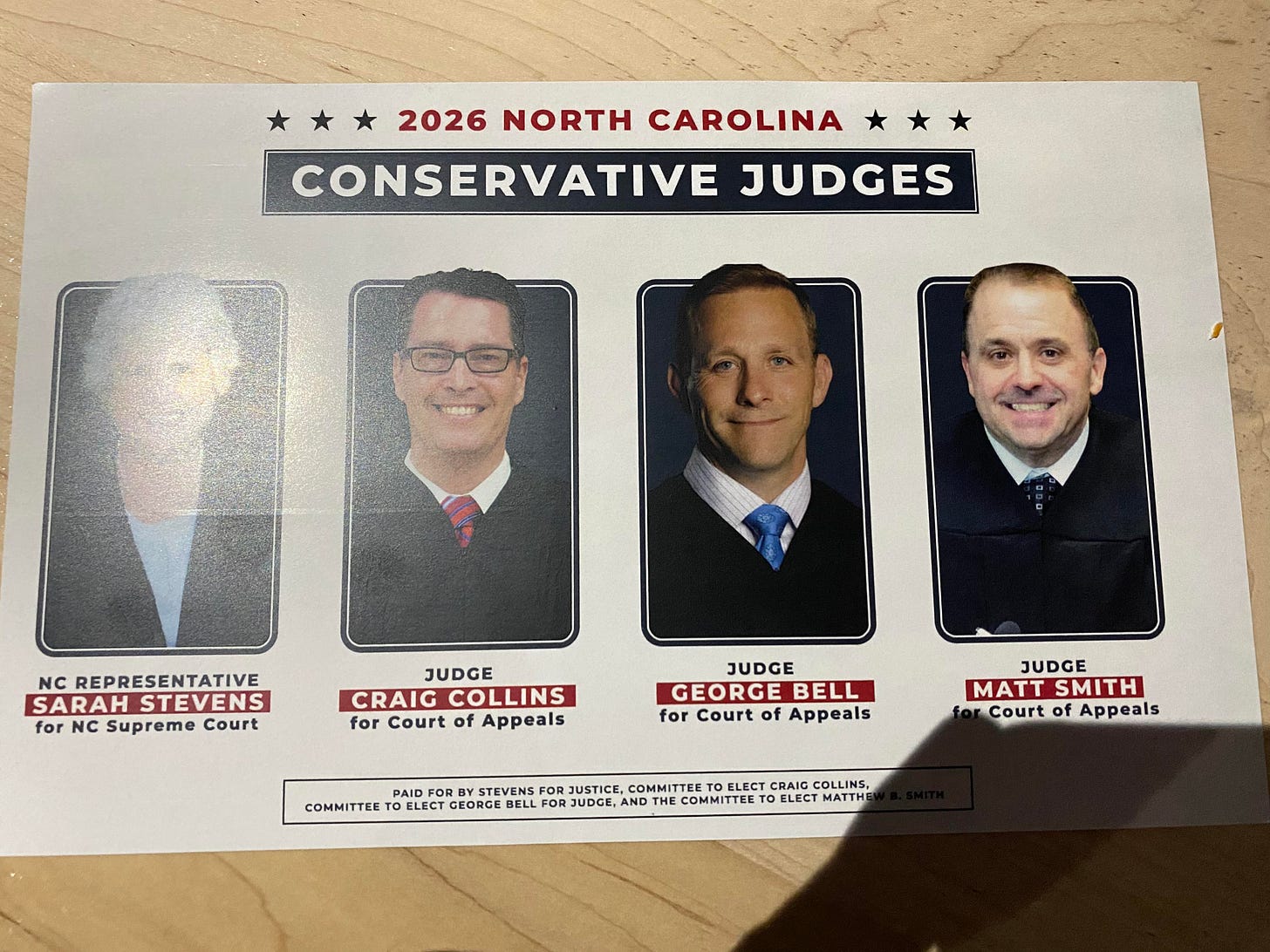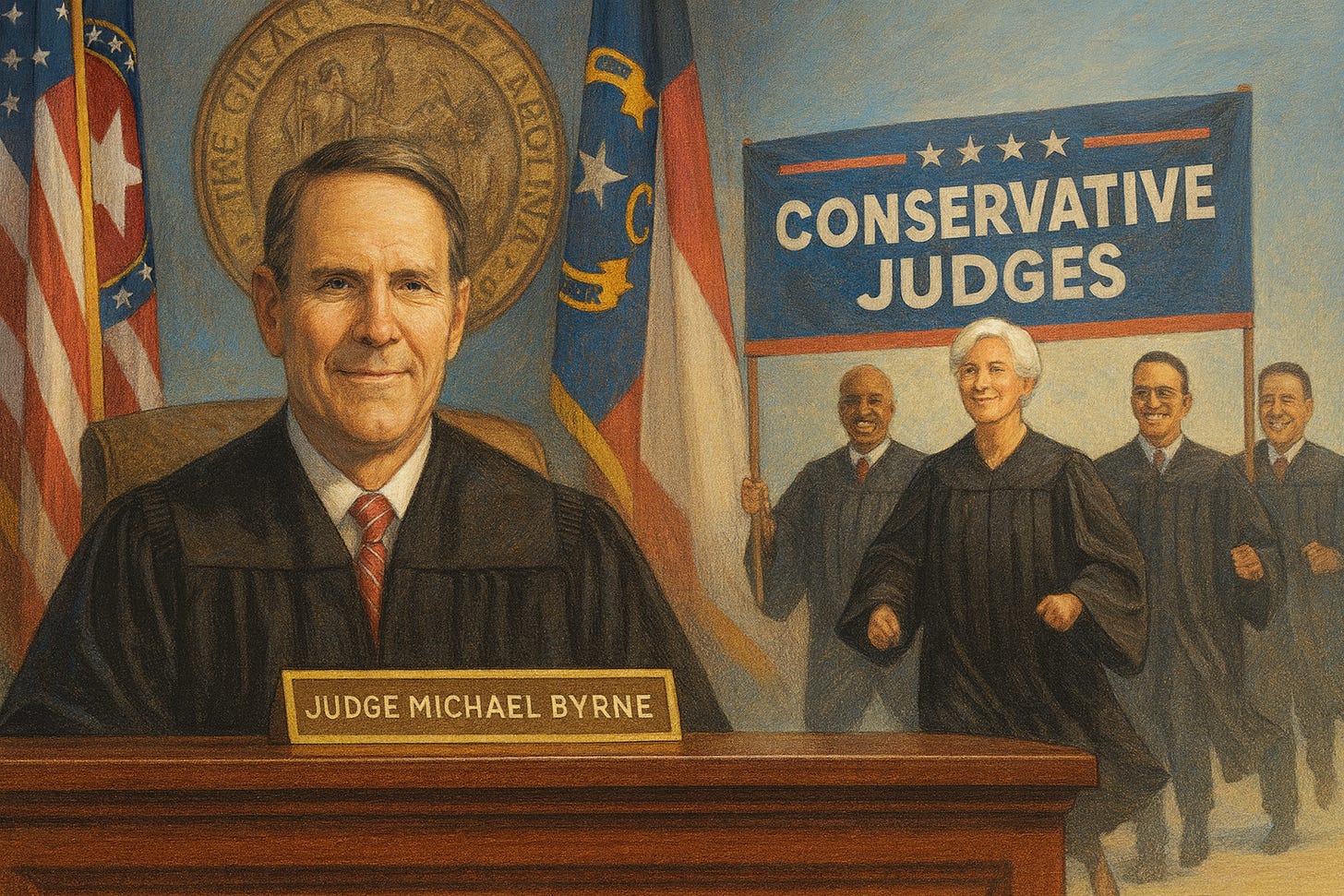Running outside the club
The slate on every table at Judicialpalooza made the Republican appellate primary look settled. Then Judge Michael Byrne called me.
I left Judicialpalooza last week assuming the Republican appellate primary was basically set. The flier on every table showed a coordinated slate — shared branding, joint events, pooled resources.
N.C. Rep. Sarah Stevens leads the ticket, running to replace Justice Anita Earls. Right behind her are Judge Craig Collins, Judge George Bell and Judge Matt Smith, each targeting one of the Democrat-held seats. All currently sit on district or superior court benches.
In a money-scarce race, campaigning this way is extremely smart politics. You stretch dollars, simplify choices, and keep volunteer energy pointed in the same direction.
Then Judge Michael Byrne called me.
He’s launched a campaign for the Court of Appeals seat currently held by Democrat Judge John Arrowood.
I came away impressed. Byrne is law first, politics second. As an attorney, he built his career in administrative law, arguing appeals and trying hard OAH cases for state employees and law enforcement. As a judge, he now hears the very matters the Court of Appeals reviews directly: certificate-of-need and state personnel.
He’s a process conservative in practice, fairness you can see, hearings when in doubt, decisions that meet the statutory clocks. Recent appeals of his orders have been unanimously affirmed. His resume reads like a perfect fit for the Court of Appeals job.
But Judge Byrne is not in Rep. Stevens’ club. When I asked about any relationship with the slate, he was blunt: “There really isn’t one.” He added, “I’m running for the Arrowood seat. If someone wants to seek a primary against me for the Arrowood seat, that’s their right, and I welcome it.” A beat later: “Elections are decided by the Republican primary voter.”
The joint campaign I saw at Judicialpalooza is a real advantage — mail can be bundled, stages shared, donors rallied. If you’re not invited into it, though, your road gets harder. Running outside the club means building your own scaffolding while making the case one room at a time.
I feel an instinctive pull toward the underdog, the person passed over or left out. Can an outsider with the right temperament and skill set cut through without the machine? Can “do the job” beat “join the team” in a low-information primary?
That’s what I’ll be watching in this race: Whether Byrne can translate a judge’s discipline into campaign traction — money beyond the Triangle, invitations to real rooms across the metros, and a message that resonates with unaffiliateds who want courts to be predictable and boring in the best way.
I can’t help but root for him.


